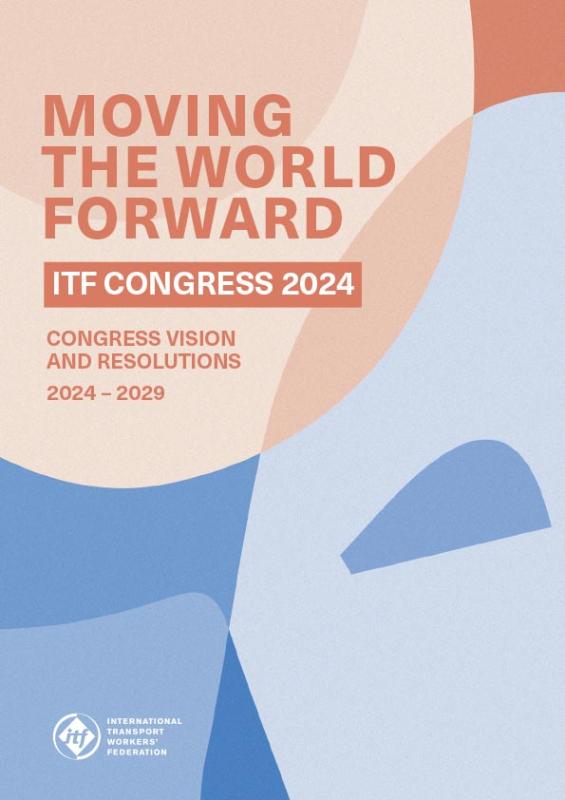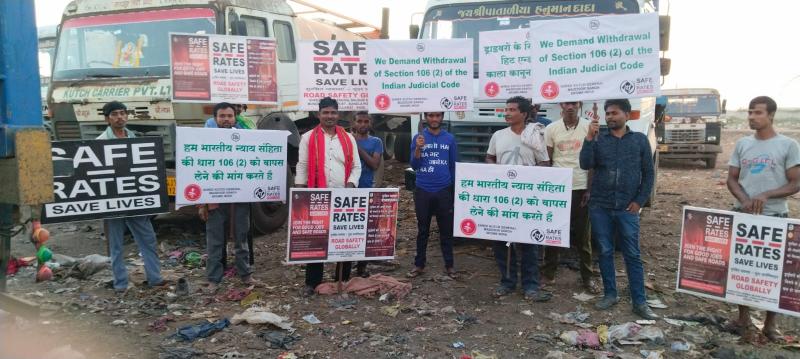My supervisor said you need to carry a plastic container and then use paper. I thought it was a joke until I found no toilets inside the train.
Mabu Molele, from Johannesburg, has worked in the transport industry for almost two decades, and has been a member of the South African Transport and Allied Workers Union (SATAWU) since 2006. Since 2018, and all through the pandemic, she has been a train driver.
Recalling her first day on the job, Mabu said she asked her male chief, though a little embarrassed, where she could get her toilet needs. “He looked at me with a beautiful smile and said to me, ‘you need to carry a plastic container and then use paper’. I thought it was a joke until I found myself in that situation. It is a system that we all use! Because there are no toilets inside the train, that is the only thing you can use when the train is in motion!”
Mabu highlights that the lack of accessible toilet facilities affects both workers and passengers.
“Commuters in all trains are hoping to go and utilise toilets, but toilets are not ready.
You found that toilets are locked even at some stations. You need to go and release yourself, but you don’t have any platform to do it. So you have to hold it in for a long time.”
She knows this situation will eventually cause serious health problems, and she is worried.
“It affects you, and you find that in the long run. You cannot hold your urine for a longer period. Your blood cannot be able to resist anything because now you are used to holding yourself for a longer period. So you can only help yourself by carrying maybe one bottle of water.”
Transport workers are on the frontline in the pandemic, in direct contact with passengers and are putting themselves at risk of contracting the coronavirus by carrying out their everyday duties. Mabu says:
“Covid-19 has been a nightmare, even now. If you find one [a toilet], you don’t know whether it is safe to use. It has been tough for all of us as workers. Even though you are not touching anything and not feeling anything, your mind is telling you that if you touch this, if you enter here, you will catch this Covid. We have seen our colleagues pass on; our family members pass on. So, psychologically it had a lot of impact on us.”
She adds that there used to be toilets on trains, and the solution is to install them again for both workers and commuters.
“This system used to be there. The problem was that those trains, like they used to put toilets inside the coaches. But now you found that those toilets are not serviced or maintained. The coaches will smell all bad.”
Mabu claims that accessing decent toilet facilities is the most basic worker and human right, and that trade unions need to give special attention to solving this problem.
“These humans need to relieve themselves if and when nature calls. We are human beings! We need to be treated as human beings as well. However, we have not made much noise about it as trade unions. It means that we need to go back and understand the people we represent being affected. Trade unions need to stand together with commuters and voice this issue out!”
Safe access to decent sanitation facilities is vital for all workers, but it is an issue felt particularly acutely by women transport workers. To break down these barriers for women working in the transport industry, and the wider world of work, and to ensure dignity and safety for all workers, trade unions around the world are taking up the campaign for better conditions.
Mabu’s story is part of a new exposé of the sanitation conditions faced by workers in public transport around the world. The report, Sanitation rights are human rights: public transport worker voices, profiles the stories of public transport workers and their everyday reality of having insufficient access to safe, clean, decent sanitation facilities.



